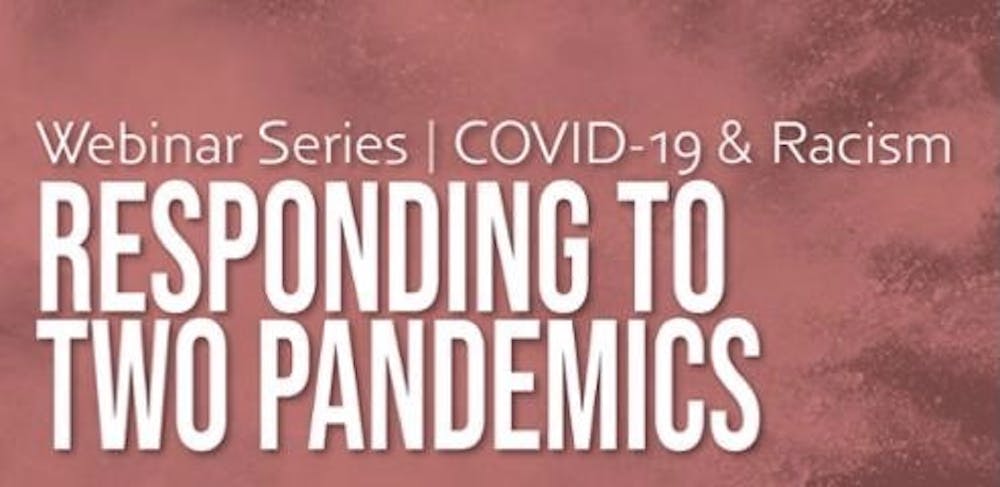In the second installment of the School of Arts and Sciences webinar series “Responding to Two Pandemics,” guests discussed the current and future state of liberal arts education at 7 p.m. on Wednesday.
Guest speakers Joy Connolly, president of the American Council of Learned Societies, and Andrew Delbanco, professor of American studies at Columbia University, discussed COVID-19 and race in relation to liberal arts education during the webinar, which was titled "Academic Disciplines: What Stays or Goes?" They also answered questions from attendees.
Delbanco brought up the cost of a high-quality liberal arts education. He said the high cost led to a wider standard of living margin between affluent white people who could afford to attend universities and lower-income people who could only afford to attend community colleges.
“Something between a third and a half of the undergraduate students in the United States attend community colleges,” he said. “80% of them hope to achieve a four-year bachelor's degree. 13% of them actually do achieve that.”
That statistic contributes to inequality in opportunity and education, which goes against the vision that all people should receive a moderate education Abraham Lincoln and Thomas Jefferson had for higher education, Delbanco said.
Connelly said the primary purpose of education was to instill change.
“The Republican party is the most critical and skeptical of education on all levels," she said. "Without trying to diagnose their motives, I would say that that that's encouraging a fear — an atmosphere of fear and resistance to change."
Nathan Snaza, director of the Bridge to Success program, which helps high school students prepare for college, was the webinar's host. Snaza is also a Women, Gender and Sexuality Studies advisery board member at UR.
Snaza asked Connelly and Delbanco what needed what higher education must do to grapple with its history of benefitting from the enslavement of Black people and in light of the COVID-19 pandemic.
“There are possibilities that some of the pressures of COVID[-19] have opened up to push us to confront some of those worst sources of inertia in us and to make the university more nimble,” Connelly responded. “What I mean by this, more practically, is — to think about the ways in which the university can be a constructive place for civic dialogue, starting with the experiences it offers to its students, graduate and undergraduate, and faculty and staff and local community.”
Delbanco pointed toward the need for honesty, even if it would be difficult to acknowledge the truth, he said.
“Every college and university in this country that has been around for a while, whether it's in the North or the South, was in some way implicated financially in the institution of slavery,” Delbanco said. “If you study African American history, you cannot evade the reparations question in one form or another. We have to ask this question.
Enjoy what you're reading?
Signup for our newsletter
"What as a society do we owe to people who are either descended from persons who were enslaved or who are still treated as less than full persons because of their racial identity? What do we owe them?”
The next webinar in the series, “COVID-19 in Historical Context,” will be held on Nov. 18.
Contact news editor Jackie Llanos at jackie.llanoshernandez@richmond.edu.
Support independent student media
You can make a tax-deductible donation by clicking the button below, which takes you to our secure PayPal account. The page is set up to receive contributions in whatever amount you designate. We look forward to using the money we raise to further our mission of providing honest and accurate information to students, faculty, staff, alumni and others in the general public.
Donate Now



